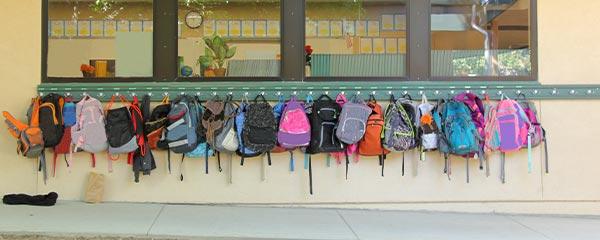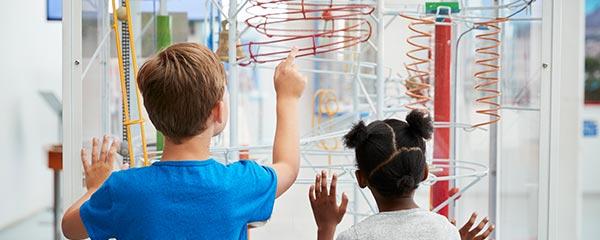Education and Families
Explore 澳门六合彩官方网址's research.

See how countries measure up on two key indicators of youth development: whether children are treated with respect and have opportunities to grow.

The latest from the University of North Carolina and 澳门六合彩官方网址 finds diversity is important for Black parents choosing childcare, and they report their child may experience racial bias in treatment.

A University of North Carolina-澳门六合彩官方网址 Study finds that 25% of Black Parents find transportation to be a "big problem" for their childcare arrangements.

Americans remain largely dissatisfied with the quality of K-12 education in the U.S., but satisfaction has risen slightly over the past year.

Among Black families with young children, parents with strong social connections are more likely to remain optimistic despite discrimination.

Black families with young children are more likely to report discussing the challenges than the advantages they may face because of their race.

Fewer than two in 10 Gen Z K-12 students strongly agree that their classwork feels important, interesting, challenging or aligned with their talents.

Eighty percent of parents of Gen Zers often worry about one or more aspects of their child's life, and many find it hard to talk about these topics. Yet kids overwhelmingly say talking to their parents about such topics is helpful.

A 澳门六合彩官方网址-Walton Family Foundation survey finds that when Gen Zers are upset, they are at least twice as likely to want their parents to listen and give them space than to want their parents to offer advice.

Nearly half of U.S. parents say their child did not participate in a structured activity that provided learning opportunities last summer. Cost is the primary barrier to greater participation.

A majority of student loan borrowers who have not completed their degree say they have delayed at least one major life event due to their loan debt.

Married people are more likely to be thriving in their wellbeing than adults who have never married, are divorced or are living with a domestic partner.

LGBT Americans are more interested than non-LGBT adults in fostering or adoption, and are facing discrimination as a major barrier, reveals a 2023 Kidsave-澳门六合彩官方网址 study.

Americans' lessened confidence in society's institutions and norms may affect society's ability to deal with crucial external and internal threats.

A 澳门六合彩官方网址 and Learning Heroes study shows that U.S. parents rely on grades to gauge their kids' success, but tests show racial gaps in actual performance.

Trends measuring Americans' values need to be analyzed in the context of differences in question wording and changes in methodology.

Demystifying U.S. foster care -- especially eligibility requirements and the experience of mentoring or parenting a foster child -- could boost mentorship and foster/adoptive parenting.

Learn about the perceptions of and barriers to foster care and adoption, especially among Black Americans.

Almost nine in 10 parents believe their child is at or above grade level, but other academic measures tell a different story.

Discover parents' perceptions of their children's academic progress.